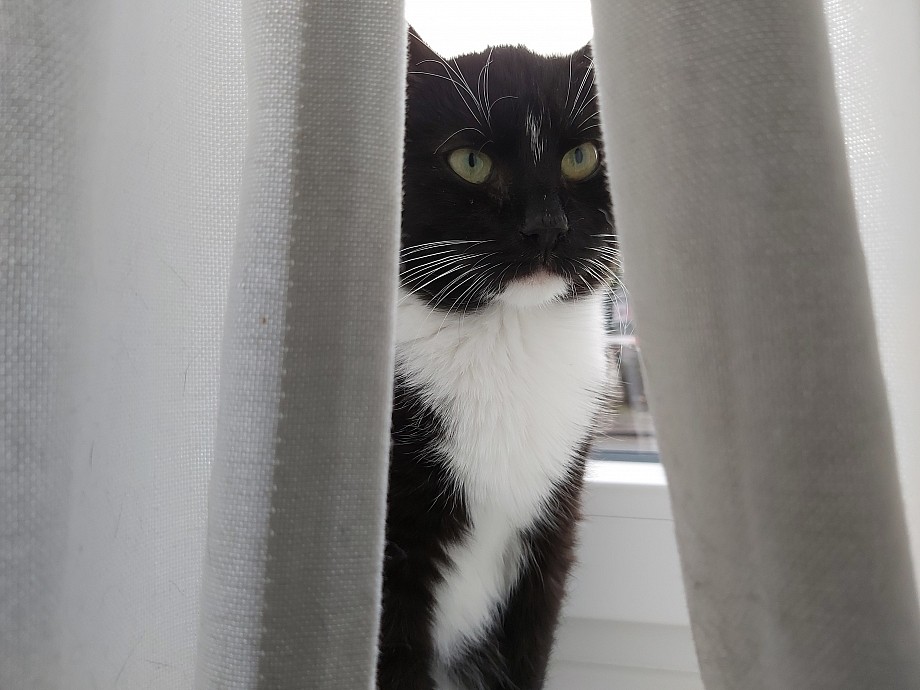The curious case of remdesivir for treatment of feline coronavirus


It all started with one of my colleagues, visually distressed, telling me one of his kittens was severely ill. All the symptoms pointed to FIP or Feline Infectious Peritonitis, a disease which, when in a later stage, is often a death sentence for cats. There currently is no cure available… or so we thought. Both avid cat lovers (my colleague more than me), we knew things were not looking good for the poor kitten.
Later that night I texted my colleague, to know how they were doing. He told me the vet gave up on the kitten and so both he and his girlfriend had frantically been searching the internet for a solution. A search with led them to a closed Facebook group, claiming to have a cure for FIP. Only drawback: the drug was not officially available on the market, and was not cheap to say the least. Knowing he’d do anything for his cats, I got alarmed. Having visions of my colleague being beaten up in an ally (or worse) after a drug deal gone bad, I asked him to be very careful and vigilant. He texted me the name of the drug, a combination of letters and numbers. Being the skeptical human that I am, I googled it. Turned out the drug was…remdesivir.
Remdesivir, notorious for being part of President Trump’s COVID-19 treatment and approved by the FDA and EMA for emergency use in corona patients, seems to be the center of a black market swindling for an untreatable cat disease. But why do cat lovers need to turn to the dangers of the black drug market to save their beloved feline pet?
Pharmaceutical company Gilead Sciences was the one to invent remdesivir, an antiviral drug initially developed to treat hepatitis C and RSV and thought to be useful for battling Ebola and Marburg infections. Remdesivir did neither of them. The drug blocks the multiplication of the viral genome via inhibition of the RNA-dependent RNA polymerase. Soon after the start of the COVID-19 pandemic, Gilead communicated that remdesivir could be useful in the fight against COVID-19. The US approved its compassionate use in COVID-19 patients in March 2020. Gilead’s communications were based on their findings that remdesivir and the likes also showed activity against other coronaviruses. One of those coronaviruses it turned out, was FeCoV or Feline Enteric coronavirus, the virus responsible for FIP in cats.
The drug probably would have never been tested in cats, if it wasn’t for a researcher of UC Davis, Niels Pedersen. Mr. Pedersen, avid cat lover, was working at a primate center doing research. Through his work with primates, he came into contact with Gilead. Being intrigued with the uncurable FIP, he asked the company to sent him a library of drug candidates for testing against FIP. Two of the tested molecules showed a marvelous result, remdesivir and a closely related compound GS-441524.
Gilead, patentee of remdesivir, went on to protect the use of remdesivir and GS-441524 against FIP in 2017 (see US10,682,368). The research team headed by Pedersen was ecstatic: the cure for FIP was near! Or was it not? Despite the clinical success, Gilead refused to license the drug for use in cats. While remdesivir and its related cousin was being tested in cats, Ebola was ravaging West-Africa. Remdesivir, being an antiviral compound, showed promising results against Ebola. As Gilead anticipated FDA approval for its drug in these Ebola patients, it worried that a parallel pathway for regulatory approval in cats would hamper its ambitions in human patients. Indeed, any adverse effects shown in cats could have an impact on the drug approval of remdesivir in humans as well. Gilead, not willing to take such risk, froze the cat project, much to Pedersen’s disappointment. He still published his findings in 2018 and 2019 (https://pubmed.ncbi.nlm.nih.gov/30755068/).
These publications sparked interest from China. China has a large pharmaceutical industry and one Chinese manufacturer sought to obtain a license from Gilead. They failed, but started to produce and selling the drug anyway. Enter the remdesivir black market, a world of shady Facebook groups, expensive vials and the occasional parasites, preying on desperate cat-parents.
The recent renewed interest in remdesivir as treatment for COVID-19 may either help or worsen the FIP case. If Gilead gets proper FDA and EMA approval for COVID-19, it may become possible for vets to use it legally, as extra- or off-label in cats. However, the WHO issued in November 2020 a conditional recommendation against the use of remdesivir, based on own trials conducted. This could hamper further clinical approval of the drug.
So what’s next for cats who have fallen in the hands of FIP? Should their humans really resort to the black market? For now, that seems indeed to be the case. During this pandemic, there has been much chatter about forcing pharmaceutical companies to share their knowledge and products with other parties, under the so-called compulsory license regime or patent pools. Vaccine producer Pfizer recently got into the eye of a storm in The Netherlands, for not willing to share the details about their COVID-19 vaccine. Under the compulsory license regime, governments can force patentees to share their intellectual property with others. The latter will pay a license fee for the use of the intellectual property. Many countries have regulations in force that allow these compulsory licenses when dealing with a human health crisis.
Unfortunately, such regulations do not exist in the framework of deadly diseases in animals. Although to my knowledge never been challenged, the compulsory license regimes seem to be restricted to cases linked to human health only. Gilead can thus not be forced to allow its use of remdesivir or closely related drugs against cat corona. For now, the force is with Gilead, and not with our feline friends.
And what about my colleague’s cat? She’s doing much better, thanks for asking.
Heeft u een vraag?
Wij helpen u graag verder.
Neem contact op met een van onze specialisten.
Wees gerust, u bent niet alleen.
Surf eens door de FAQ. Heeft u nog twijfels,
aarzel dan niet ons te contacteren.




